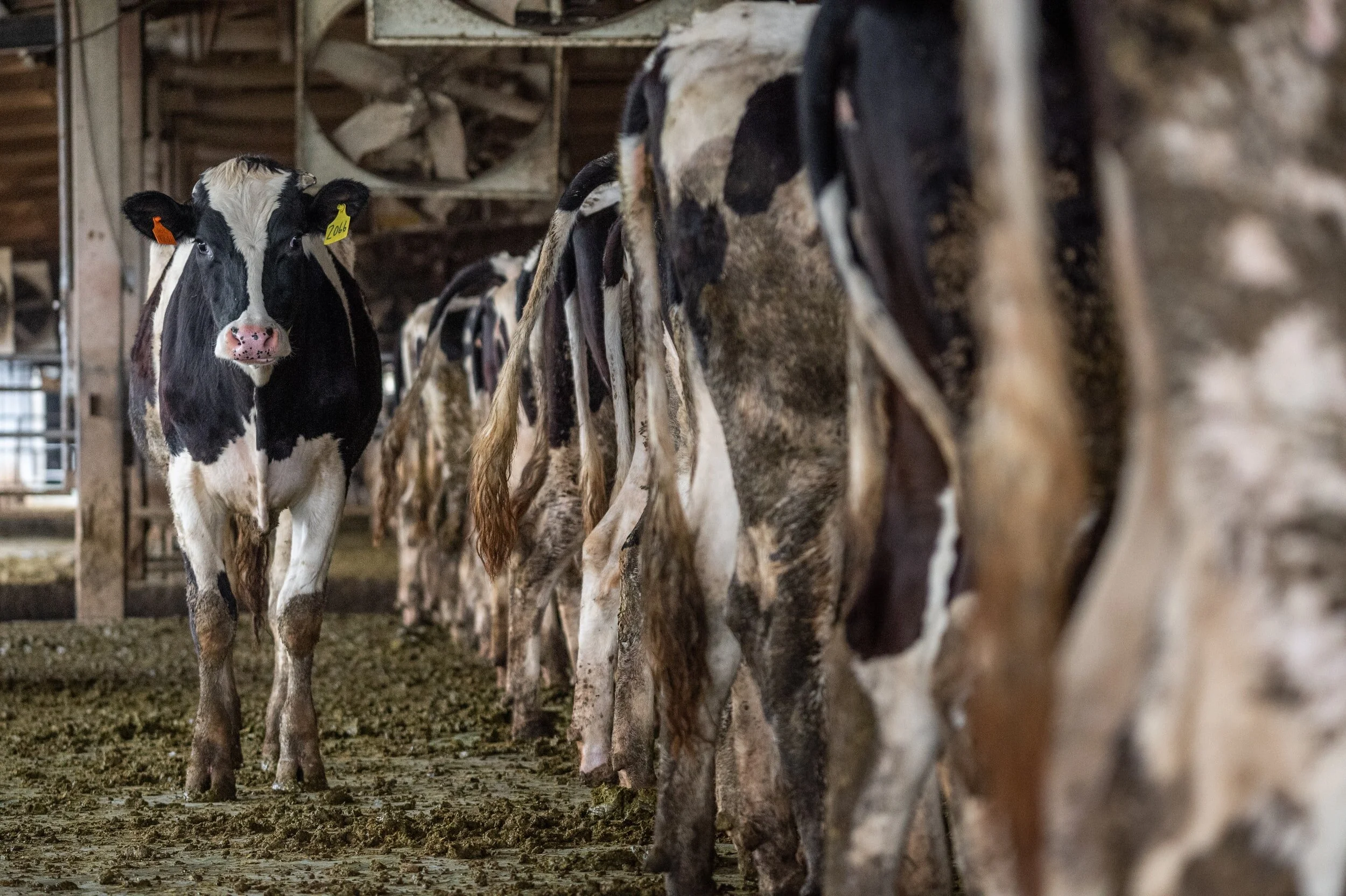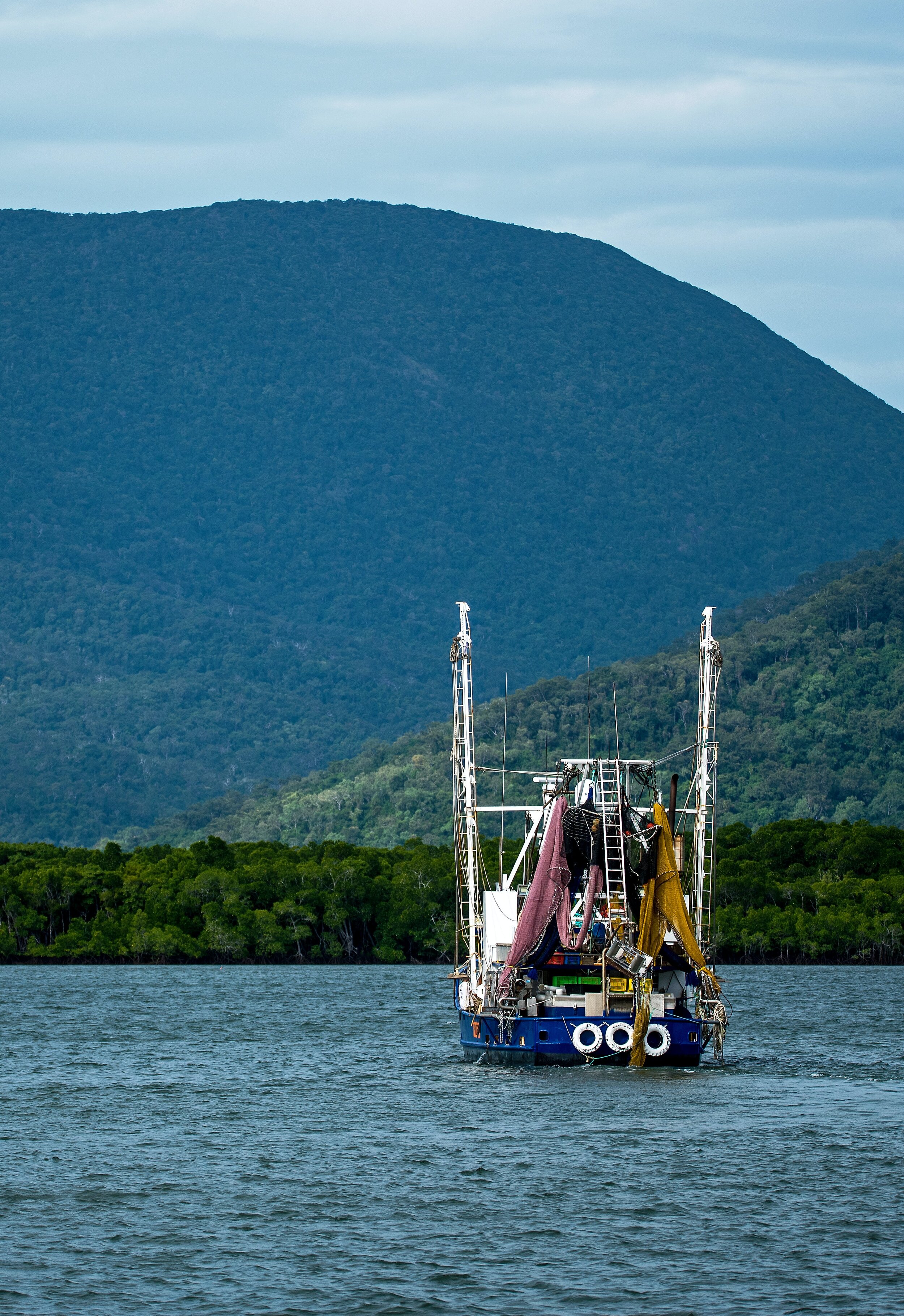A small group of corporations play an outsized role in exploiting marine animals in international waters. Estimates suggest that only thirteen seafood corporations account for up to 40% of the largest and most valuable fish catches worldwide. So far, decades old management measures to regulate fishing in international waters have failed to stem fish population declines. Meanwhile, dangerous working conditions, forced labor, trafficking, and other human rights abuses are alarmingly common onboard fishing and cargo vessels.
CAL presenta amicus pidiendo que la Corte Suprema proteja la identidad de las victimas en Doe v. Chiquita
Corporate Accountability Lab presentó un memorial de amicus curiae solicitando a la Corte Suprema de Estados Unidos que conceda el certiorari en el caso, Doe v. Chiquita Brands International. El caso fue presentado por los familiares de sindicalistas, trabajadores del sector bananero, organizadores políticos, activistas sociales y otras personas atacadas y asesinadas por las Autodefensas Unidas de Colombia (AUC), una organización paramilitar de derecha en Colombia financiada en parte por Chiquita, la empresa bananera multinacional con sede en Estados Unidos. Los demandantes han interpuesto una querella contra Chiquita, alegando que Chiquita fue cómplice de las AUC financiándolas.
CAL Files Amicus Brief Asking Supreme Court to Protect Victims' Identities in Doe v. Chiquita
Corporate Accountability Lab filed an amicus brief on behalf of a group of human rights organizations, asking the US Supreme Court to grant certiorari in the case Doe v. Chiquita. The case was brought by the family members of trade unionists, banana workers, political organizers, social activists, and others targeted and killed by the United Self-Defense Group of Colombia (AUC), a right-wing paramilitary organization in Colombia funded in part by Chiquita.
Shell Shocked: Dutch Court Rules that Shell Must Reduce CO2 Emissions by 45% by 2030
While 100 companies are responsible for nearly three-fourths of global emissions contributing to climate change, governments have historically lacked the tools--or political will-- to effectively mitigate corporate contributions to climate change, even those that fossil fuel companies make.
However, a new ruling by a Dutch court may force change for corporate accountability on climate change.
Fair Trade USA & The Failures of Eco-Social Certification
When we choose to purchase a product that bears a certification label-- like a yogurt with a fair trade stamp-- we may assume that the workers and environment along the supply chain were respected in the product’s development. But the social auditing and certification industry behind such certifications do not always have the impacts we might think. Fair Trade USA’s recently-launched Certified Dairy label is an example of how social auditing and certification programs that are not worker-driven all too often end up as greenwashing and/or fairwashing schemes and fail the workers they are meant to protect.
Hamida Begum v. Maran (UK) Limited: Shipbreaker’s Death Turning the Tide in Third-Party Liability Claims Under English Law
While large shipping vessels are meant to last for years, all vessels eventually reach the end of their working lives. These vessels must then be dismantled, a process known as shipbreaking. Maran, a UK-based company, sold a shipping vessel to a demolition cash buyer to have its shipping vessel demolished. This post focuses on a decision issued by the Court of Appeals for England and Wales on March 20, 2021, against Maran’s appeal of the trial court’s decision denying Maran’s application for reverse summary judgment.
Amazon’s Working Conditions in Alabama are the Tip of the Iceberg
In a 2019 segment on working conditions in Amazon’s eerily named “fulfillment centers,” Comedian John Oliver gave the world’s largest e-commerce company the brilliant faux-tagline: “Amazon: try not to think about it.” But as the world watched the historic unionization drive at an Amazon fulfillment center in Bessemer, Alabama unfold over the last several months, ending with a defeat to the organizers earlier this month, the reality of Amazon's labor practices have become harder to ignore.
Okpabi v. Shell: A Shifting Tide in Parent Company Liability?
While 2021 has not yet been the year we were hoping for, there is one bright spot: European courts are beginning to hold parent companies liable for human rights abuses committed outside the home country. In January 2021, the Hague Court of Appeal found Royal Dutch Shell’s (Shell) Nigerian subsidiary, Shell Petroleum Development Company (SPDC), liable for oil spills that occurred in the Niger Delta, an oil-rich region in Nigeria.
Shell Must Compensate Farmers for Niger Delta Destruction
A Dutch appeals court reversed a lower court decision and found Shell Petroleum Development Company of Nigeria (SPDC), responsible for several oil spills impacting three Niger Delta communities. In a first for a Dutch court, it also found that Royal Dutch Shell, SPDC’s parent company, breached a duty of care for foreign operations.
Grasping at ATS Straws: Piracy & Human Rights Abuses on the High Seas
Piracy may seem like historical fiction, but pirates remain active around the world today. For example, criminal organizations in Somalia looting commercial vessels have recently gained global attention. However, piracy, as it is understood in international law, is also prevalent in fishery operations that engage in forced labor, human trafficking, and other human rights abuses. US companies source seafood from these violent fishery vessels and sell them to American consumers every day.
Ken Saro-Wiwa’s Legacy & Why His Message Matters Now More than Ever
Today marks the 25th anniversary of human rights activist Kenule (Ken) Saro-Wiwa’s murder at the hands of the Nigerian government and allegedly backed by Shell. Saro-Wiwa was a voice for the Ogoni people—an indigenous group in Nigeria— that advocated for the Ogonis’ rights to control their own resources and environment, instead of being dominated by the government and corporate interests.
Private Companies Producing with US Prison Labor in 2020: Prison Labor in the US, Part II
This post follows on from our post exploring the use of prison labor during the Covid-19 pandemic. It details the current forms that prison labor can take and, using what little public data is available, highlights some of the companies using prison labor in the United States.
If Prison Workers are Essential, We Should Treat Them Like It: Prison Labor in the US, Part I
This post explores the lessons that we can learn from the COVID-19 pandemic about the prison labor system in the United States and includes personal accounts from Charity Ryerson, CAL’s Executive Director.
If Corporate Support of Black Lives were more “Walk” than “Talk”
What would the world look like if big businesses actually implemented Black Lives Matter (BLM) values throughout their business models? The short answer: very different. This post gives examples of the hypocrisy between corporate PR and business impacts on people of color. It imagines steps companies could take towards creating a world where anti-racist statements align with operations.
More Trouble Ahead for the ATS? SCOTUS Grants Cert in Nestle Case
The US Supreme Court just granted Nestlé’s cert petition in a case based on forced child labor in Côte d’Ivoire. Implications for the plaintiffs--former child slaves-- and the future of the Alien Tort Statute (ATS) are significant.
CAL & EarthRights Launch Updated Guide to Foreign Legal Assistance Statute, Allowing Attorneys Suing Companies Access to Discovery Process in the US
In 2019, CAL partnered with EarthRights International to update their Guide to the Foreign Legal Assistance statute. Given that the US is an increasingly difficult jurisdiction for transnational human rights cases against companies, this tool provides an opportunity for workers and community members to access key evidence located in the US even where they may not have been able to bring suit there.
Landmark Nevsun Ruling Will Pave Way Forward for Other Victims of Corporate Abuse
On Friday, the Canadian Supreme Court announced its decision on jurisdiction in Nevsun Resources Ltd. v. Araya, in which a Canadian company is being sued for alleged violations of Customary International Law (CIL) in the East African country of Eritrea. Global human rights and international law advocates are applauding this major decision, finding that CIL is part of Canadian law, even where the legislature has taken no action to codify it domestically.
Indigenous Peoples’ Day: Ogonis push back on miltarization and moves to forcibly resume oil drilling in Ogonilands
This Indigenous Peoples’ Day, we are reflecting on the steadfast nonviolent struggle of the indigenous Ogoni people in Nigeria and the human rights and environmental abuse they have suffered at the hands of the Nigerian government and Shell (Royal Dutch Shell’s subsidiary Shell Petroleum Development Company of Nigeria (SPDC)).
CAL VICTORY! Test Case Offers Solution for Global Worker Exploitation
14 manufacturers. 178 factories across the globe. New rights for thousands of workers and affected communities. This is the initial result of Corporate Accountability Lab’s new test case, showing the potential to revolutionize the way companies do business, and to benefit millions of workers and affected communities producing for the US market.
Shell in Nigeria: The Case for New Legal Strategies for Corporate Accountability
One of the best documented and long-standing cases of corporate abuse in the world is the case of the Ogoni people of the Niger Delta and their decades-long struggle with Shell. As a multinational oil company, Shell has subsidiaries across the world, extracting the world’s hottest commodity from Australia to Venezuela.
























